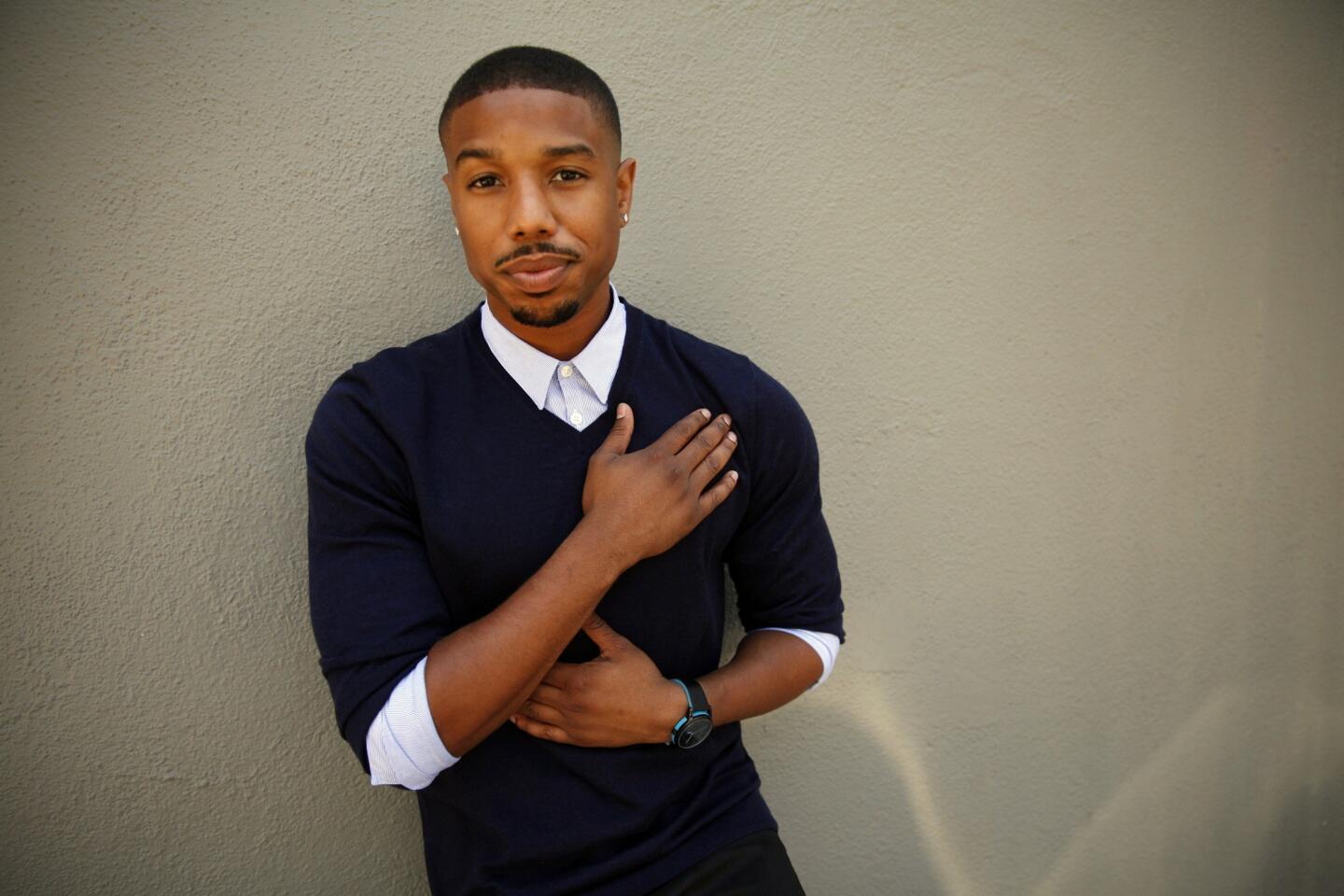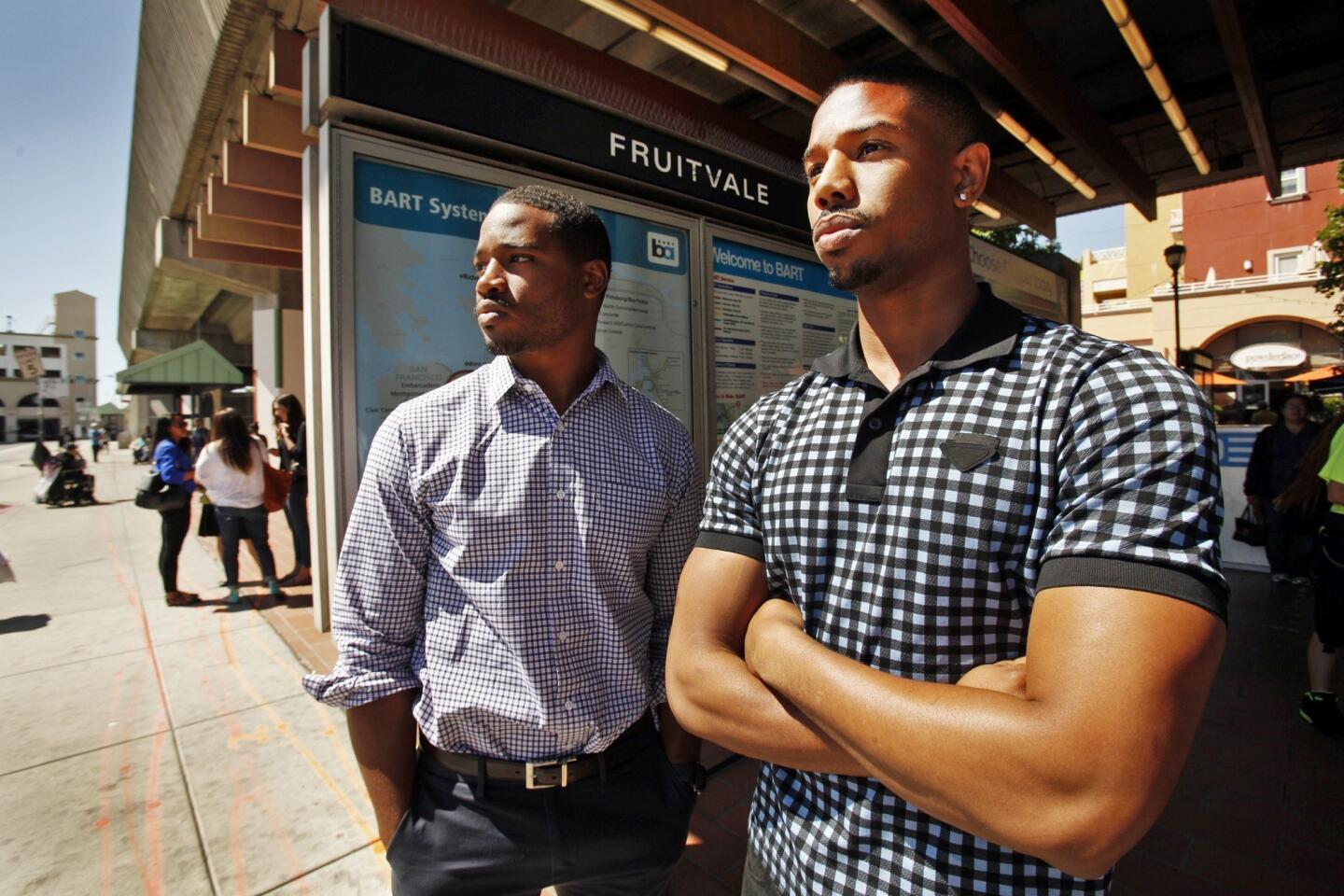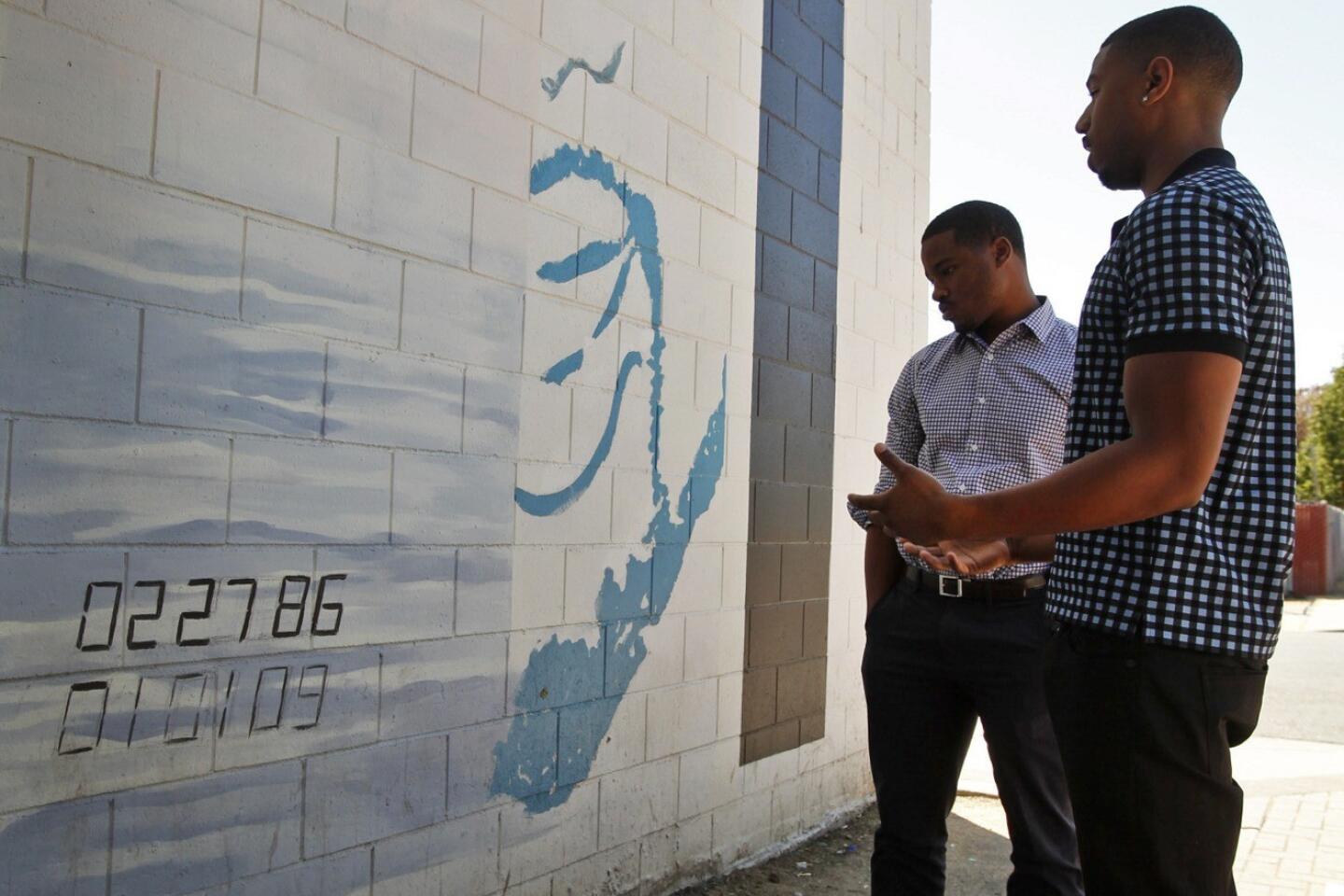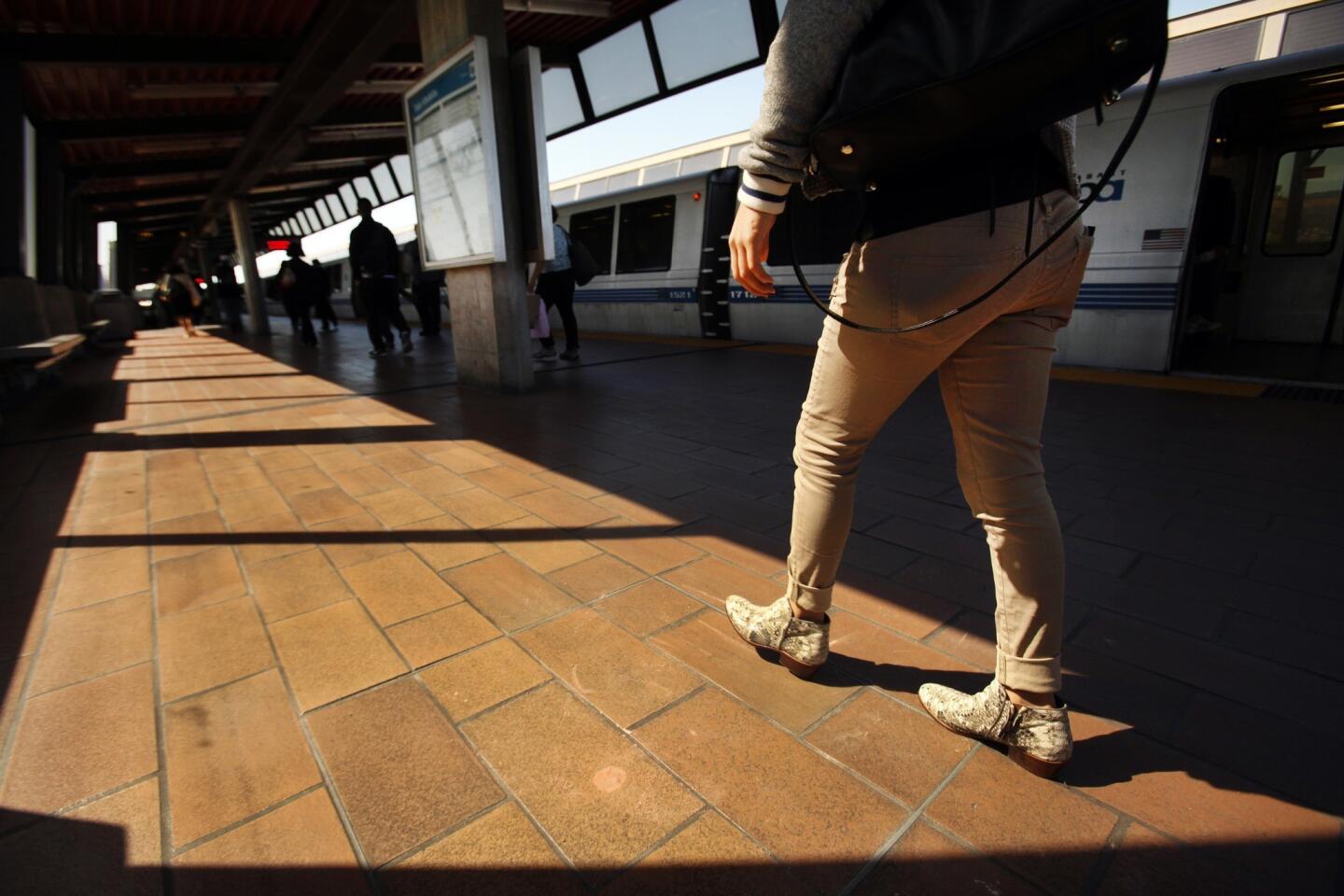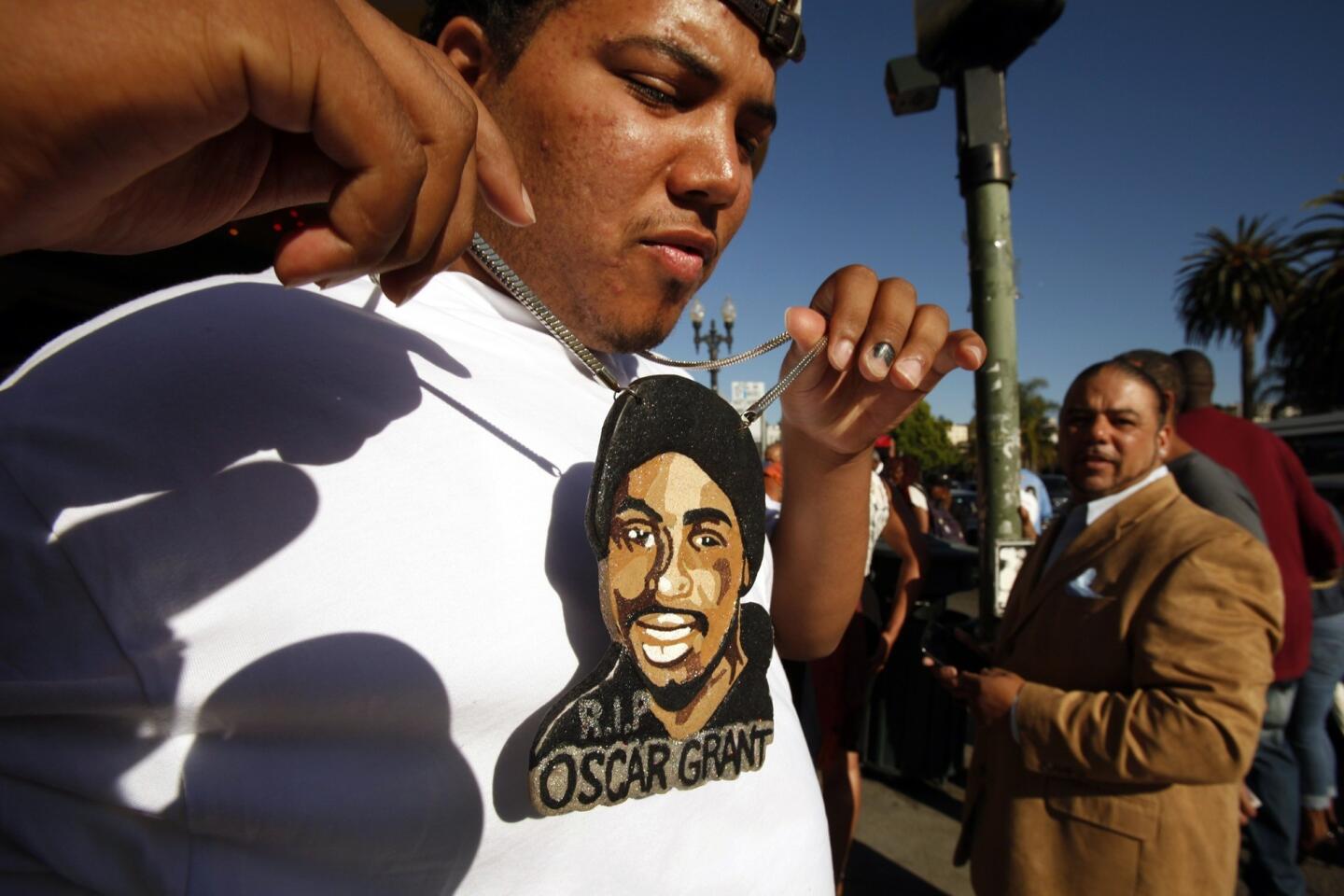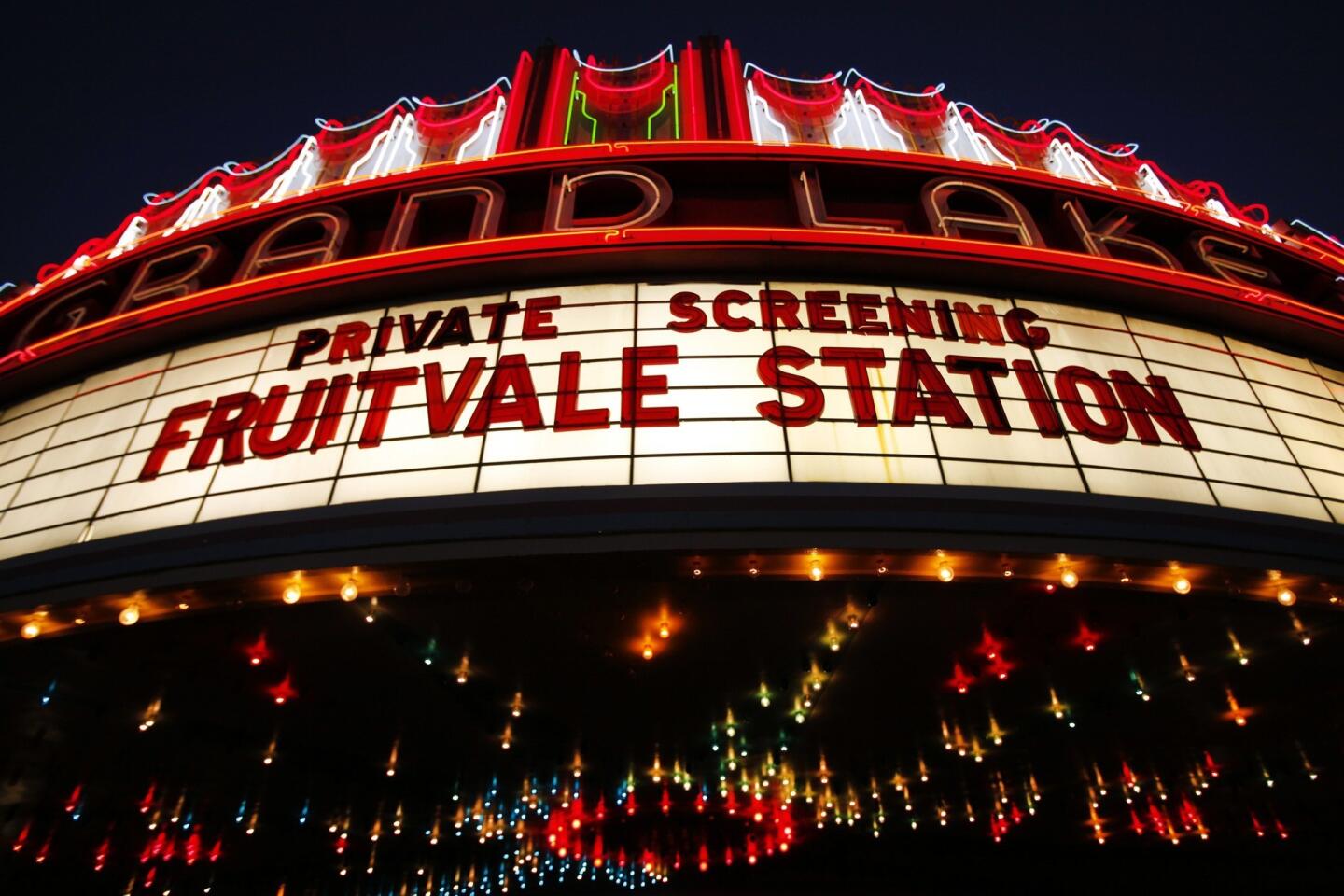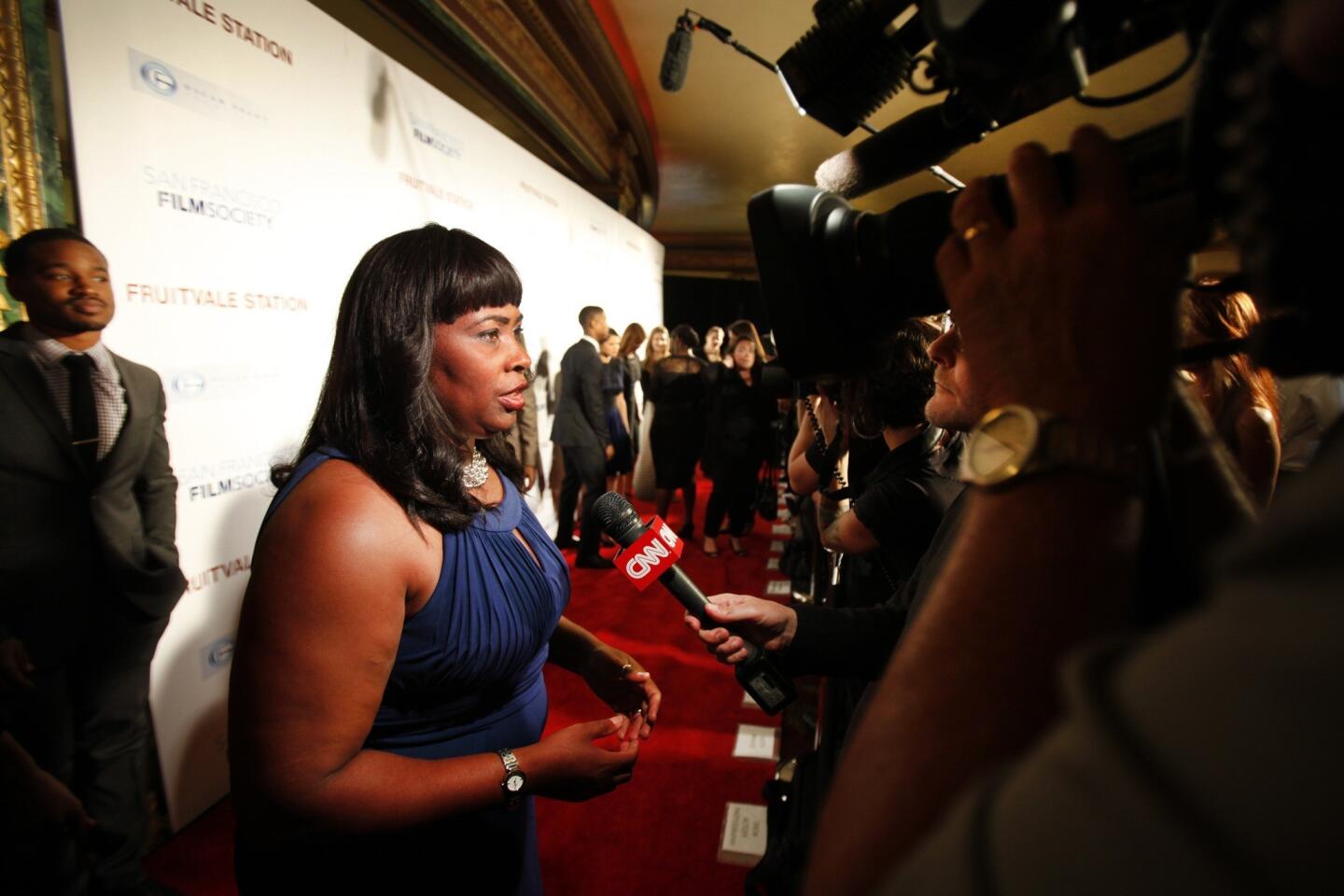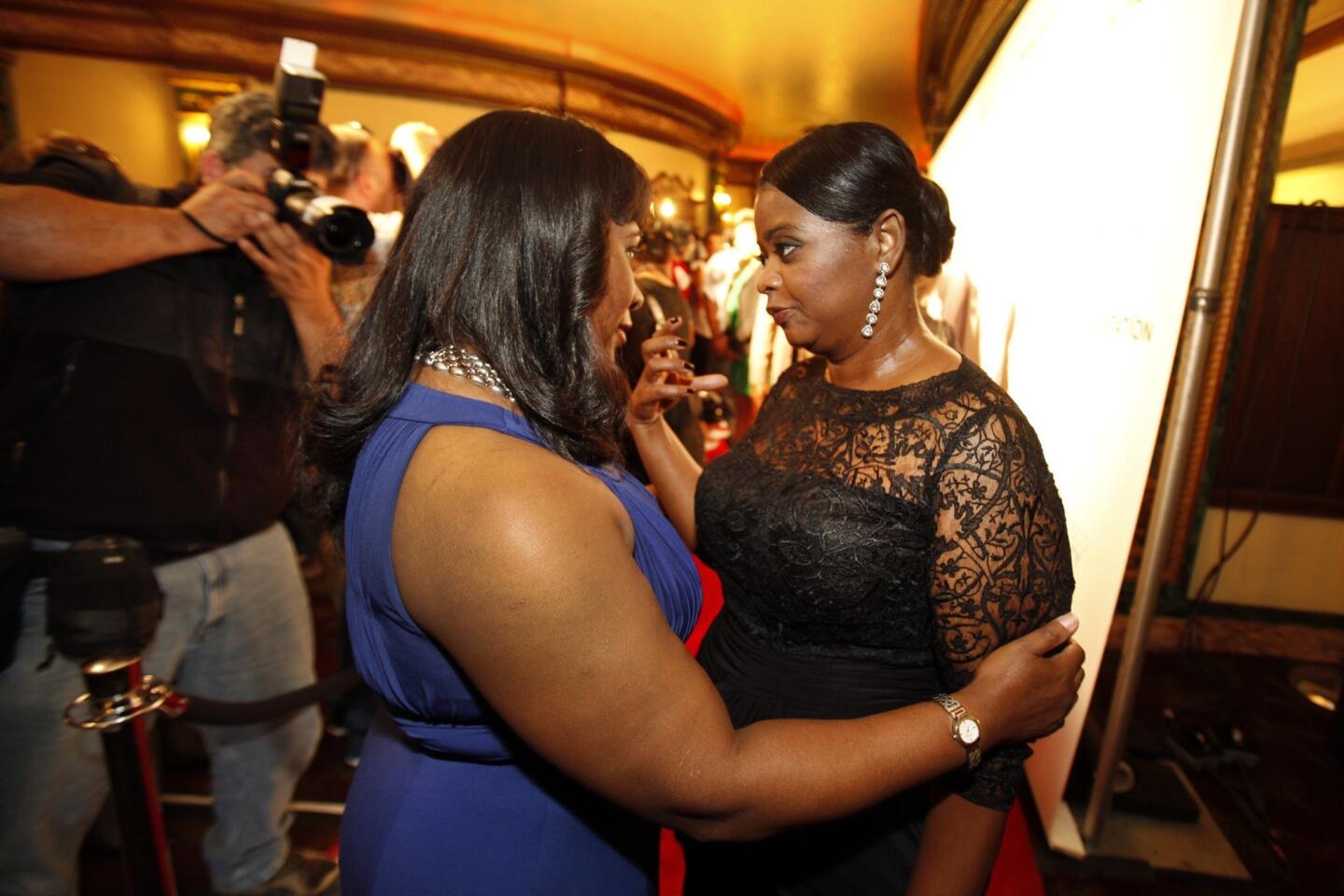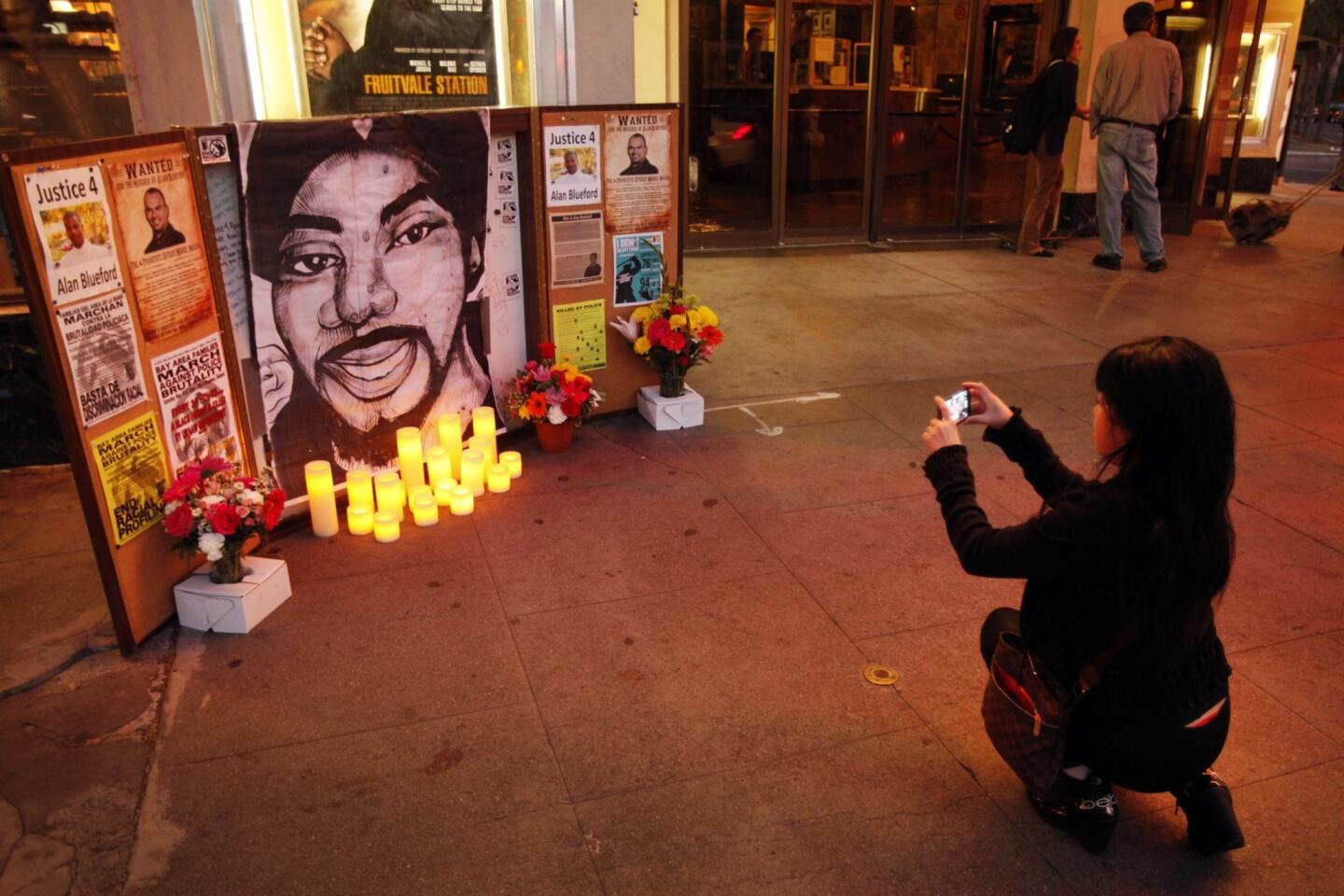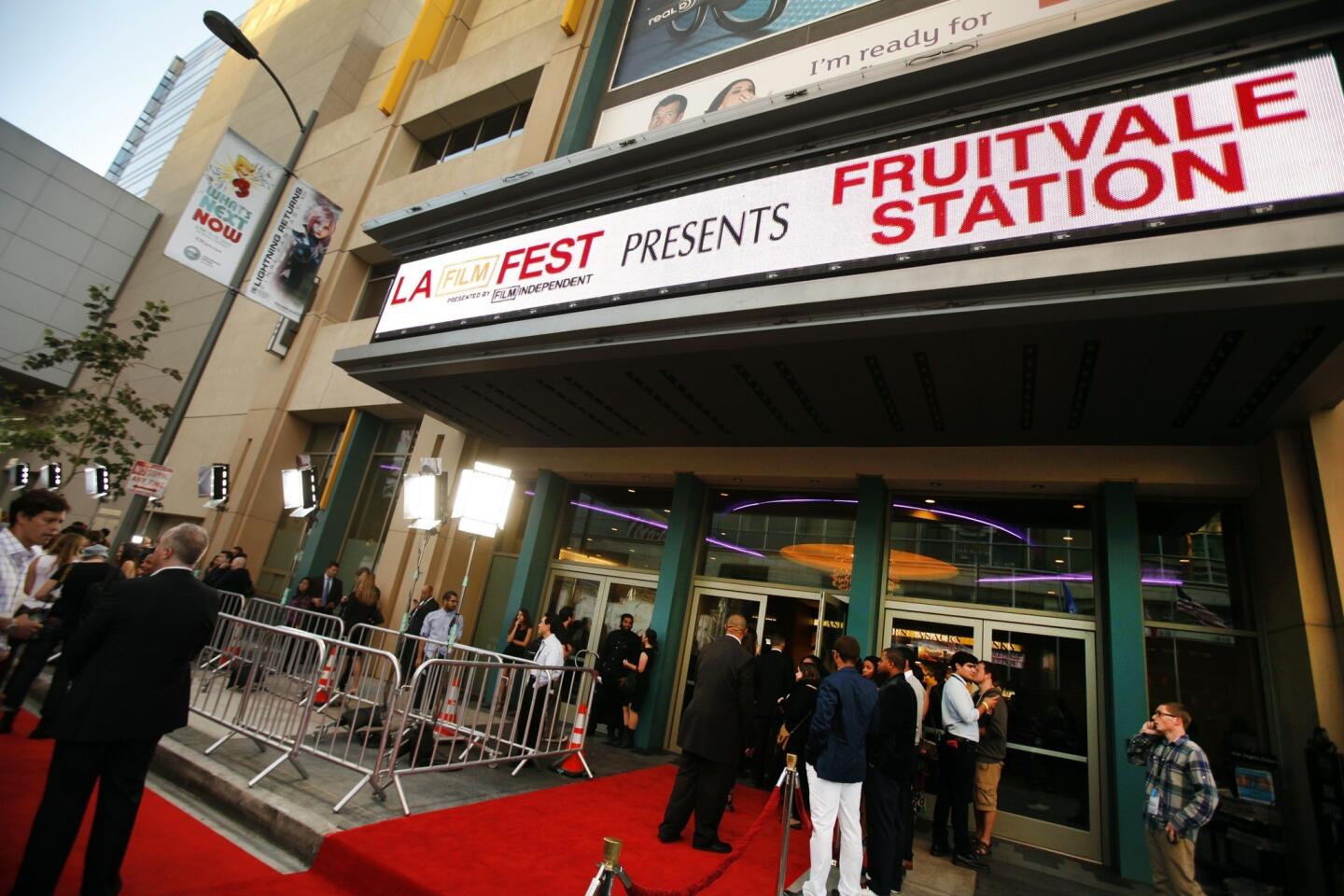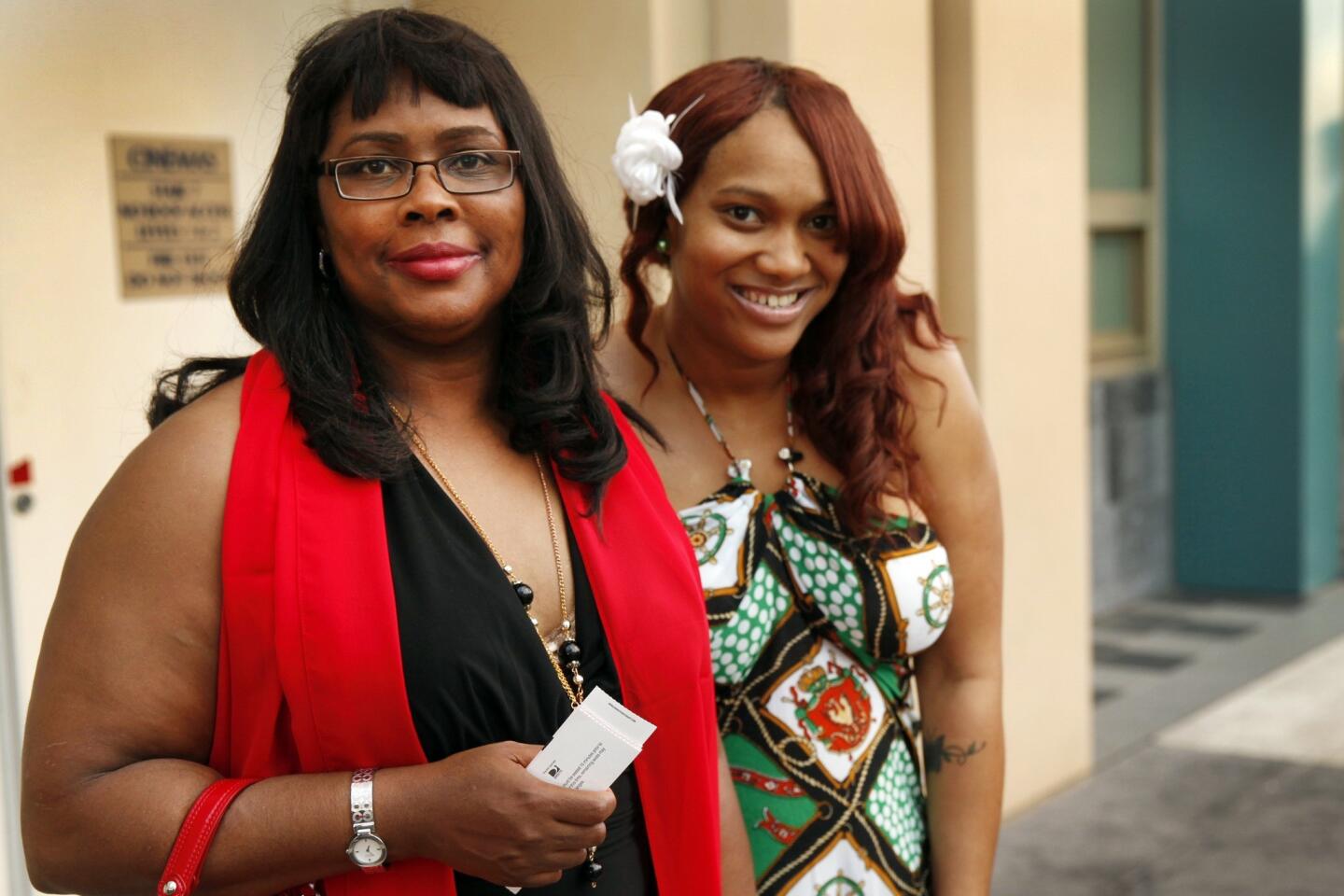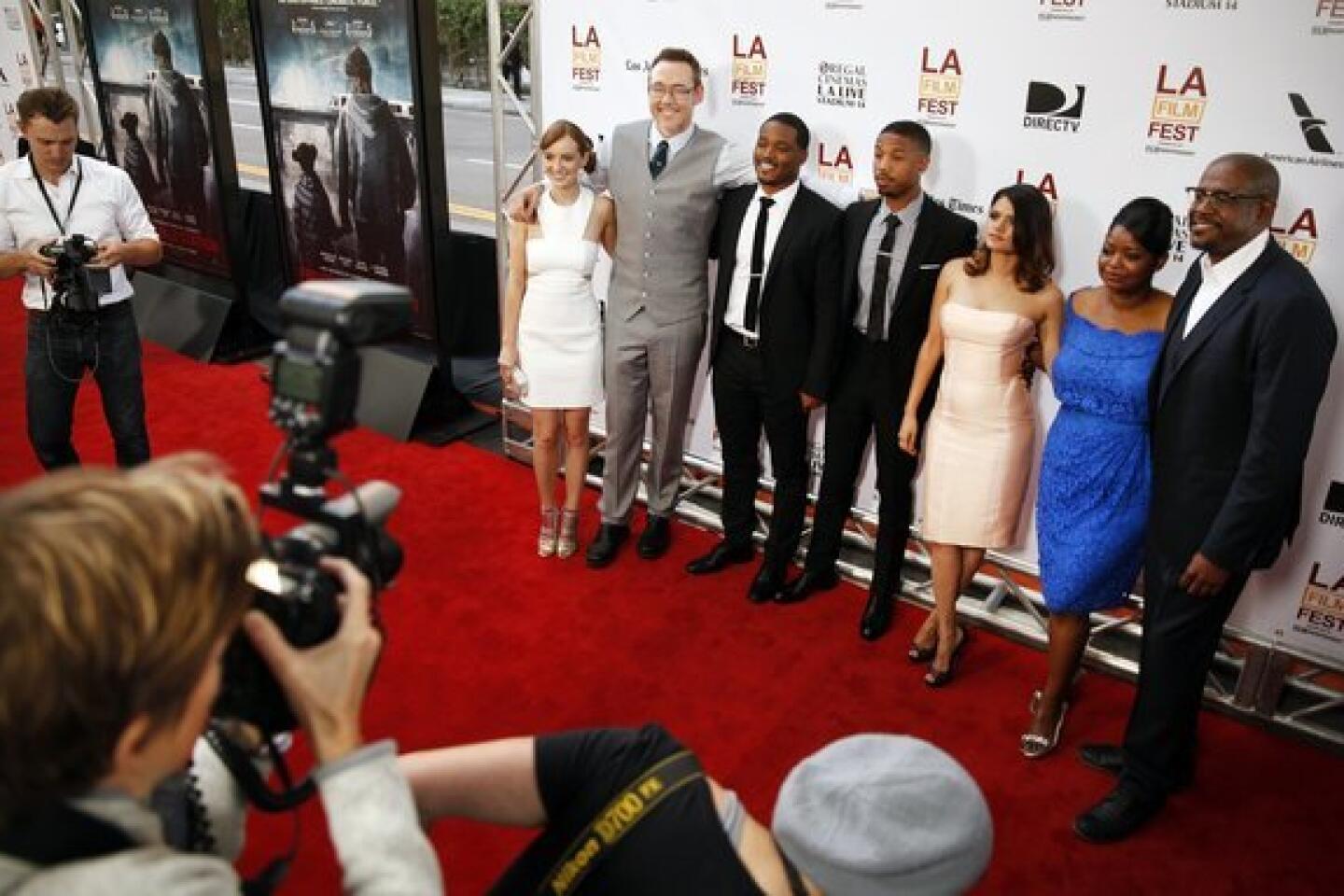Review: ‘Fruitvale Station’ an incendiary portrait of a life cut short
Made with assurance and deep emotion, “Fruitvale Station” is more than a remarkable directing debut for 26-year-old Ryan Coogler. It’s an outstanding film by any standard.
Featuring a leap-to-stardom performance by Michael B. Jordan, “Fruitvale’s” demonstration of how effective understated, naturalistic filmmaking is at conveying even the most incendiary reality is as hopeful as the story it tells is despairing.
“Fruitvale” won both the Grand Jury Prize and the Audience Award at Sundance, as well as the Un Certain Regard Prize of the Future at Cannes, and its story is a true one, a narrative that created national shock waves when it happened.
GREAT READ: Oscar Grant film delivers a vital message
Early on New Year’s Day 2009, Oscar Grant, a 22-year-old unarmed black man, was shot in the back and killed by a transit policeman at the BART system’s Fruitvale station in Oakland. It was an event that went viral as transmitted cellphone videos of the incident sparked outrage and demonstrations.
An Oakland resident studying at USC’s film school at the time, Coogler not only identified closely with Grant (“It was kind of like it happened to me, or someone I knew,” he said at Sundance) but he also, as the finished movie demonstrates, understood both the sources of the event’s emotional impact and its implications for the neverending story of race and power in America.
It’s Coogler’s empathetic talent to be alive to what is happening on-screen, to know how much weight to place on any given moment, and best of all, to understand that the difference between giving things their due (rather than overdoing it) is the key to dramatic impact. A natural storyteller, he has the ability to let narrative simply unfold, to bring us in on the inside of a life even while working under the constraints of a tight budget and a 20-day shooting schedule.
What makes “Fruitvale” so effective is its determination to do justice to all aspects of Grant’s character, to resist the temptation to view him as anything other than the full, flawed human being we see on-screen.
In this, Jordan — memorable as the conflicted young drug dealer Wallace in “The Wire” — is essential. Coogler wrote the role of Grant, Osc to his friends, with the actor in mind. Not only does Jordan have Grant’s distinctive smile but he also, Coogler said at Sundance, can convey the particular combination of “warmth and an edge” that makes us feel we are experiencing the man as he must have been.
PHOTOS: Oscar Grant subway shooting story on film
The director made the wise decision to start “Fruitvale Station” with those viral phone videos, so we can see both how abrupt and shocking his death was and be under no illusions about how this film is going to end. Far from making the rest of “Fruitvale” anticlimactic, knowing as a viewer what no one on-screen knows grounds this film in an unmistakable way, giving it a sense of tragic inevitability that grows as the minutes tick away.
“Fruitvale Station” begins almost exactly 24 hours before it ends, with an early morning Dec. 31 argument between Oscar and Sophina (a fine Melonie Diaz), his girlfriend and the mother of their 4-year-old daughter, Tatiana (Ariana Neal). Oscar has been caught cheating, and though his regret and commitment to the relationship seem sincere, Sophina is finding it difficult to trust him and move on.
Oscar has particular plans for this day, and not because it is New Year’s Eve. In fact, though he and Sophina might catch the fireworks in San Francisco, he tells a friend it’s all going to be “nothing major, low key. It’s going to be chill.”
What makes this day special for Oscar is that it’s the birthday of his mother, Wanda (“The Help’s” Academy Award-winning Octavia Spencer in an especially strong performance), and he has to pick up the cake and the seafood for Grandma Bonnie’s gumbo that will be the highlight of the family celebration.
As Oscar gets this done, stopping by Joe’s Market, where he used to work, to get the crabs, we get to see his warm side, the helpful way he puts Katie (Ahna O’Reilly), a customer who needs cooking advice, on the phone with Grandma Bonnie. This affection is especially visible in his relationship with his daughter, whom he clearly adores.
PHOTOS: Hollywood backlot moments
But, as the day moves on, we also hear about and see the things that have bedeviled Oscar. Chronic lateness cost him his job at Joe’s, he’s been in prison, and he’s unnervingly quick to anger, a genuine good nature turning to livid fury in an instant.
As much as “Fruitvale Station” makes no attempt to hide these things, it is also insistent that they do not define the man. Oscar’s determination to change, to turn his difficult life around and make it better, could not be more sincere. By the time this terribly moving film is over, the fact that he was not given the chance seems genuinely tragic.
--
‘Fruitvale Station’
Rating: No MPAA rating
Running time: 1 hour, 24 minutes.
Playing: At ArcLight, Hollywood; Landmark, West Los Angeles
More to Read
Only good movies
Get the Indie Focus newsletter, Mark Olsen's weekly guide to the world of cinema.
You may occasionally receive promotional content from the Los Angeles Times.
